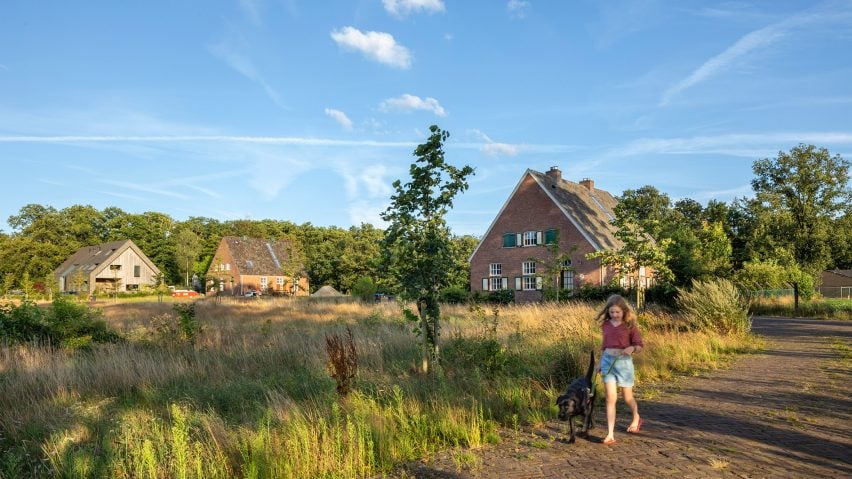
MVRDV transforms world war two military base into housing
Dutch studio MVRDV has overhauled a former world war two German military base in the Netherlands, adding terraced housing and preserving a series of bunkers disguised as farmhouses.
MVRDV worked with landscape studio Buro Harro and developer KondorWessels Projecten on the redevelopment of the site, named Buitenplaats Koningsweg, aiming to create a masterplan that responds to its architectural history.
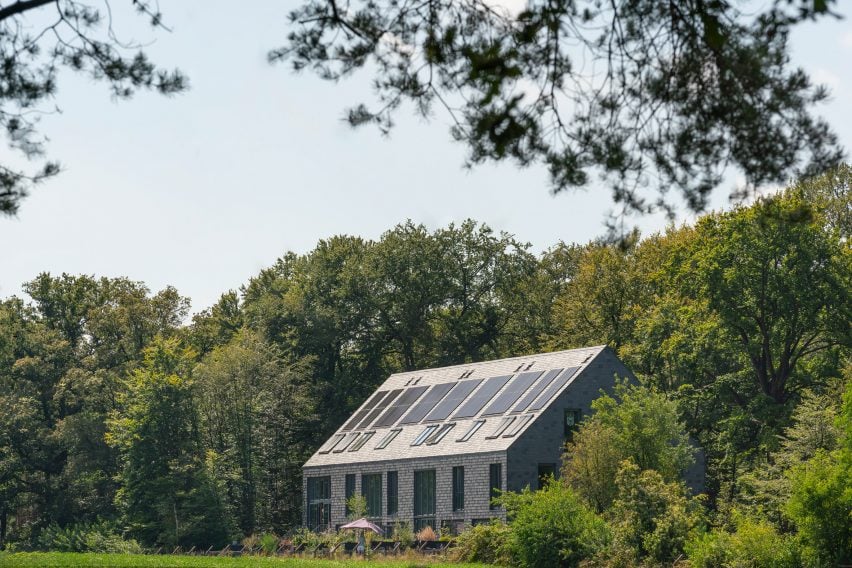
Located in the Veluwe forests on the outskirts of Arnhem, the site was originally built as two military facilities around the Deelen airfield – the largest German airfield in the Netherlands during the second world war.
MVRDV has preserved several of its wartime buildings, including concrete military bunkers with brick exteriors designed to resemble farmhouses.
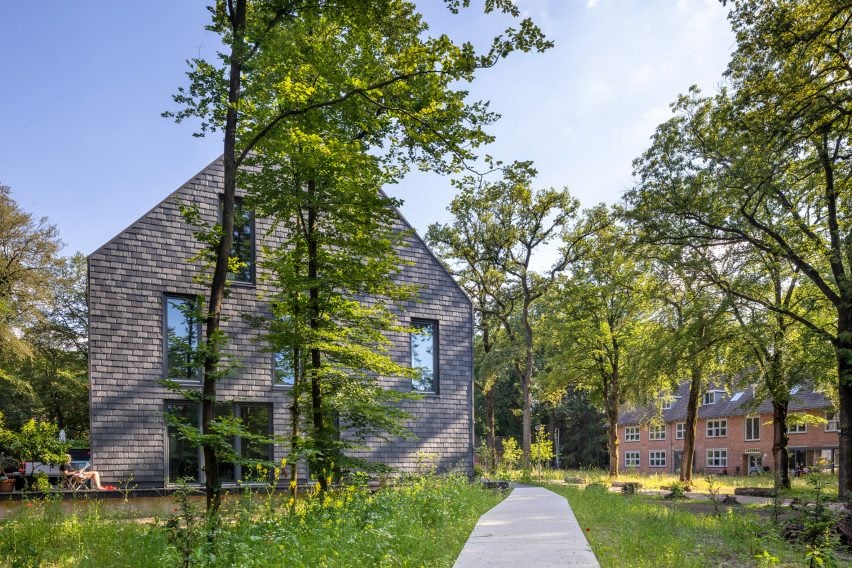
As part of MVRDV's masterplan, local studios Kraft Architecten and Hoogte 2 Architecten altered other buildings on the site that were built after the war, adding doorways and dormer windows in dark grey finishes to distinguish them from the original features.
On the western side of the site, formerly the Kamp Koningsweg Noord facility, three residential terraces have been built on the footprint of demolished buildings.
Designed by MVRDV with the same size and shape as the former buildings, the terraces each contain seven houses and have walls and roofs covered in grey slate.
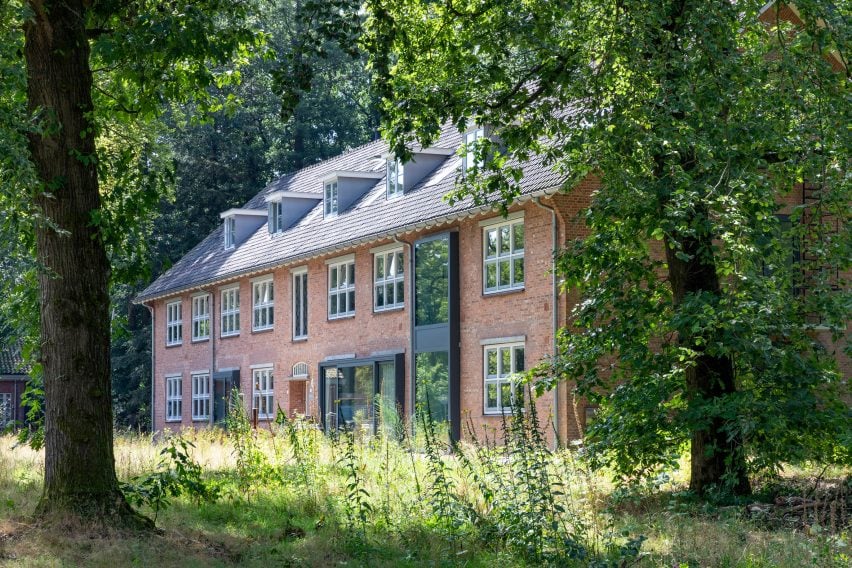
"An unusual aspect of Buitenplaats Koningsweg is that the buildings were designed from the very start to disguise their true nature," said MVRDV founding partner Nathalie de Vries.
"How could modern interventions help to draw attention to their history while preserving the integrity of that disguise? Our answer was to make changes hyper-legible," she continued.
"The clear delineation between the old, new, and reconstructed elements, along with unexpected details such as the metre-thick bunker walls of the historic buildings, help people to intuitively interpret the site's story."
The slate-clad terraces have timber-framed structures with underground car parking and decked outdoor patios that overlook the surrounding natural landscape.
MVRDV created different floor plans for the houses, including three-storey and split-level designs, to cater to the needs of different homeowners.
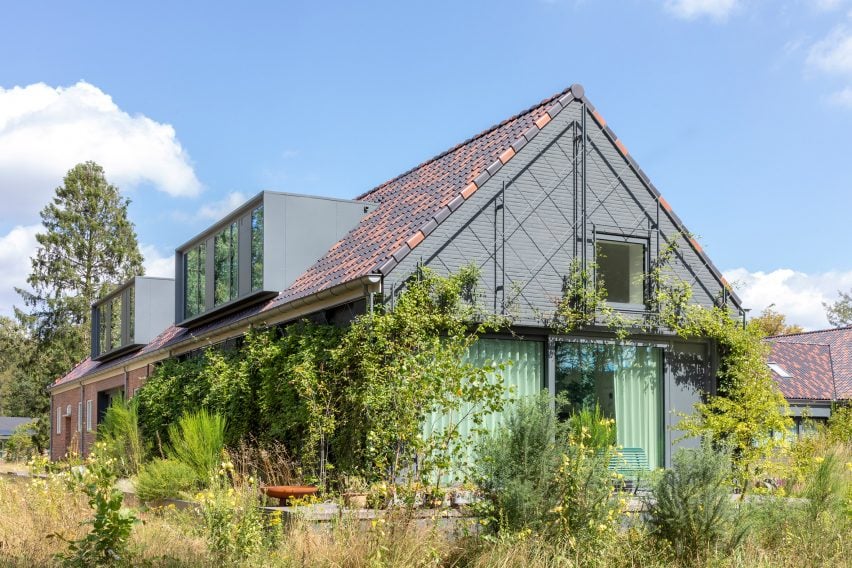
Some of the existing buildings on the Kamp Koningsweg Noord side of the development have been renovated into office spaces and workshops intended for creative industries.
A community space at the centre of the plot includes areas for an artist in residence, ateliers, a bar and restaurant, a reception and shared living rooms.
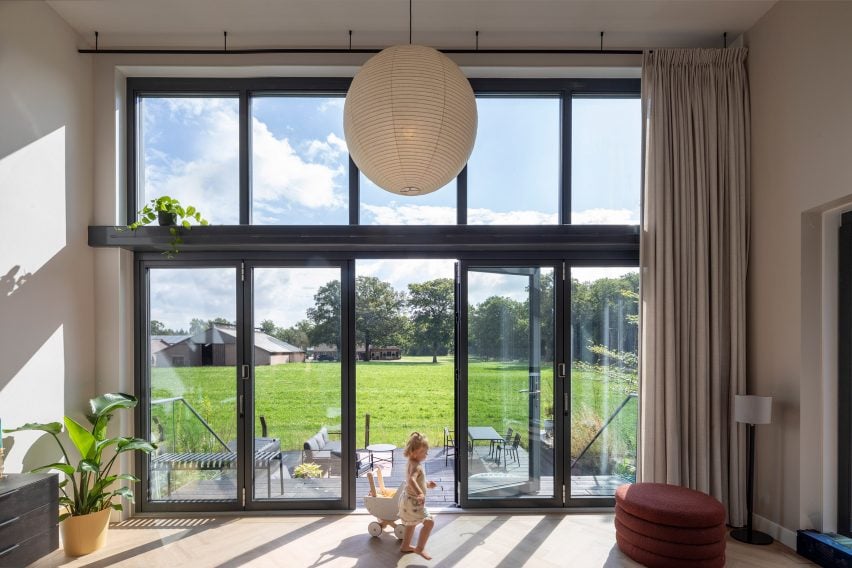
The eastern side of Buitenplaats Koningsweg, which was once the Zeven Provinciën facility, now functions as a residential area, with seven existing buildings converted into homes.
To the north of the site are 11 "follies", or rental homes, created by different studios as part of a design competition. They each have a playful design based on the theme of being disguised in the forest, including forms evocative of hunting lodges, tree houses and wood piles.
Among them are Buitenverblijf Nest by i29 and Namo Architecture and Stay Under the Radar by Sander van Schaik and Robert-Jan de Kort Architectuur.
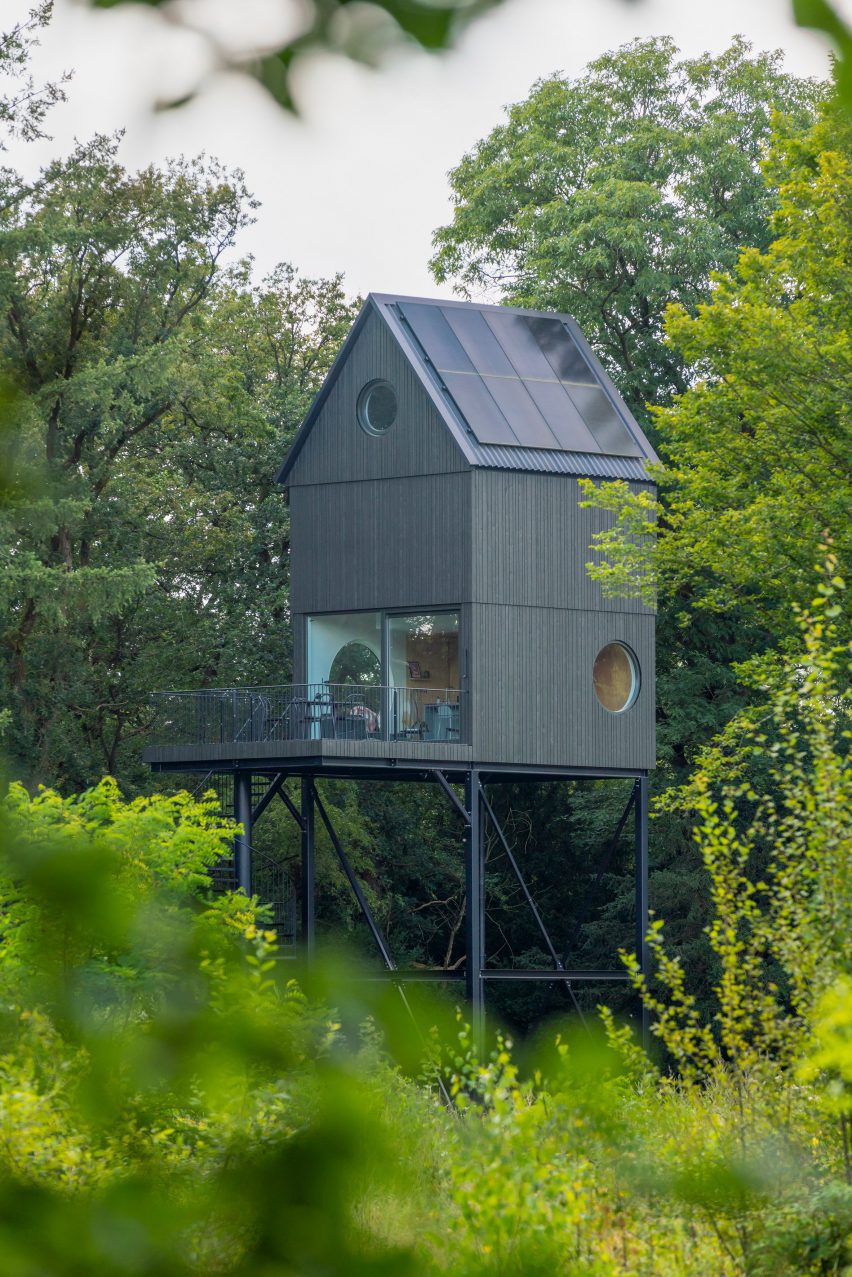
The site's perimeter fences have been removed to allow wildlife to roam freely, while narrow footpaths are used to minimise the amount of hard landscaping and allow the natural surroundings to flourish.
Based in Rotterdam, MVRDV was founded in 1991 by de Vries, Jacob van Rijs and Winy Maas. Its other recent projects include a bright yellow office retrofit in Berlin and a cluster of seven housing blocks with stepped terraces in Abu Dhabi.
The photography is by Daria Scagliola unless stated.
Project credits:
Architect: MVRDV
Landscape architect: Buro Harro
Contractor: Ufkes
Structural engineer, MEP and building physics: Aveco de Bondt